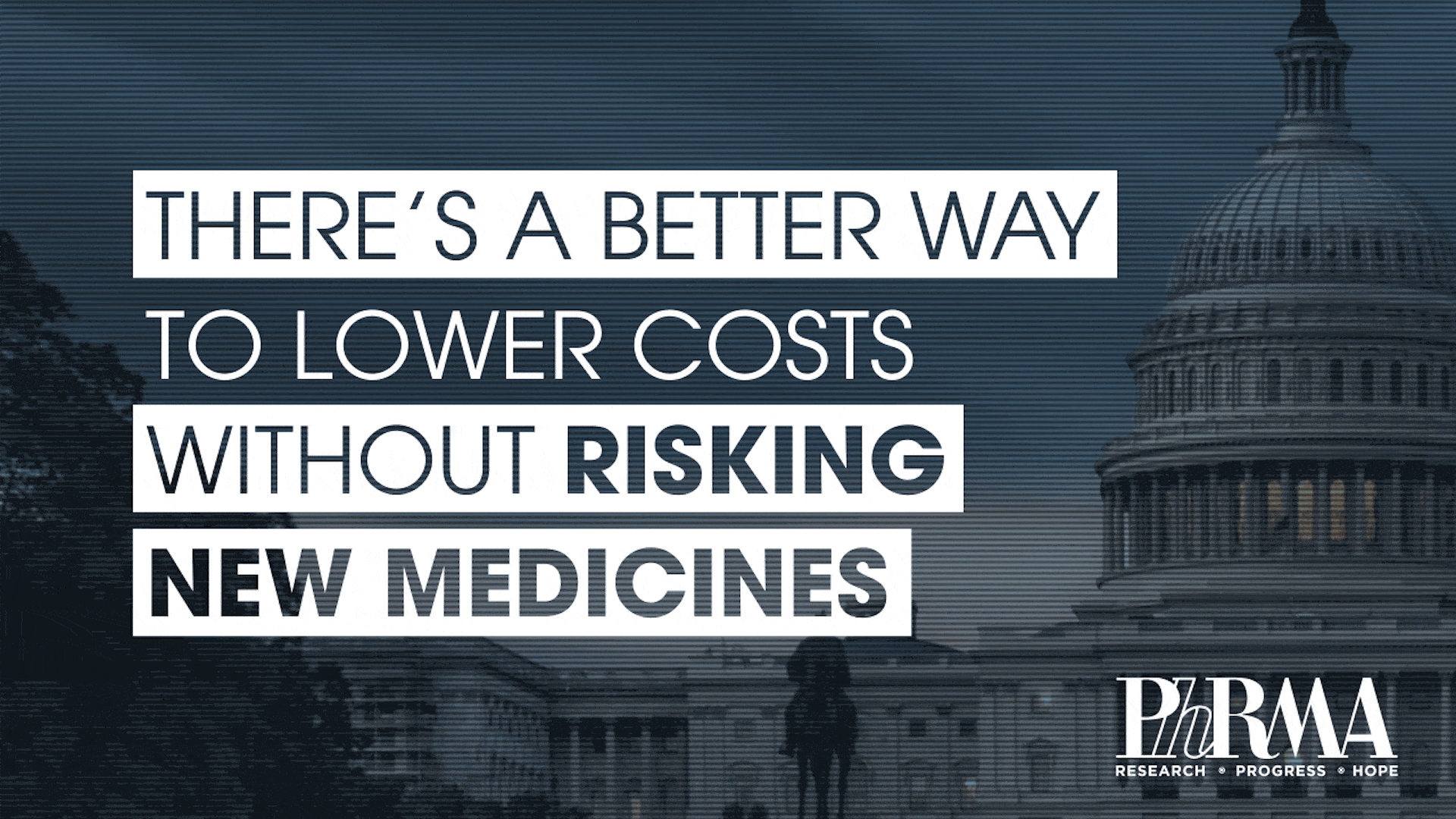| |
| |
| |
| Presented By PhRMA |
| |
| Axios Vitals |
| By Tina Reed · Aug 12, 2022 |
| Happy Friday, Vitals readers — especially all of you southpaws. Tomorrow is International Left-Handers Day. Situational awareness: The CDC relaxed COVID-19 guidance on quarantining and social distancing Thursday, marking a significant change in how the nation deals with COVID-19, Axios' Sareen Habeshian writes. Today's newsletter is 989 words or a 4-minute read. |
| |
| |
| 1 big thing: Drug prices could give Dems a midterms lifeline |
 |
|
| Illustration: Aïda Amer/Axios |
| |
| Vulnerable Democrats believe finally passing a law to let Medicare negotiate the prices it pays for some prescription drugs will give them a much-needed lifeline in what's otherwise been shaping up as a brutal midterm cycle, Axios' Victoria Knight writes. Why it matters: A relentless focus on health care helped propel Democrats to seize control of the House in 2018, and they're hoping that delivering on this decades-long campaign promise will help them keep their congressional majorities now. "It could help in close races or swing districts, since health care costs are a top-of-mind issue and even if you don't understand the policy, Americans will see Democrats as siding with patients over the pharmaceutical industry," Democratic strategist Jesse Ferguson told Axios. Driving the news: The House is due to clear the massive health, tax and climate package containing the drug pricing provisions today, and President Biden is expected to promptly sign it. - Rep. Abigail Spanberger (D-Va.), has been talking about the legislation's drug price negotiations and Medicare price cap this week with constituents in her swing district, according to her campaign. She told the Washington Post the bill would help her to "look a retiree in the face and say we are capping your out-of-pocket costs."
- Sen. Maggie Hassan (D-N.H.), talked about the prescription drug provisions and how it will lower costs for Medicare patients and consumers at an event with the AARP in New Hampshire on Tuesday.
- Sen. Michael Bennet (D-Colo.), held a press conference to "celebrate" the bill's passage and talked about capping the out-of-pocket drug costs for seniors at $2,000 on MSNBC.
What we're watching: Polling shows that inflation and gun violence remain at the top of voters' minds this midterm cycle, but health care costs are close behind. Go deeper. |
    |
| |
| |
| 2. Watchdog flags low hep C drug uptake |
 |
|
| Illustration: Gabriella Turrisi/Axios |
| |
| Usage of cheaper generic hepatitis C drugs was lower among Medicare beneficiaries than Medicaid enrollees in 2020, costing seniors thousands of dollars in extra out-of-pocket spending, Axios' Caitlin Owens reports from a new HHS Office of Inspector General report. Why it matters: The report underscores that just because a generic version of a drug exists, patients are not necessarily benefitting from it — and supports arguments that Medicare's prescription drug benefit structure incentivizes insurers to favor brand-name drugs over generics. Background: Medicare spent billions of dollars on hepatitis C drugs after the introduction of Gilead's Sovaldi, which came to market with a list price of $84,000 per course of treatment. Gilead later introduced a second hepatitis C drug, Harvoni, at a list price of $94,500. - In 2019, Gilead introduced two generic versions — called authorized generics — in response to affordability concerns.
- Other lower-cost brand options also became available.
What they found: In 2020, uptake of the authorized generics was faster in Medicaid than Medicare, and some Medicare Part D plans didn't even cover them. Be smart: This report comes just a few days after a CDC report that found only a fraction of Americans, even those with commercial insurance, access the brand-name hep C drugs. Zoom in. |
    |
| |
| |
| 3. Wastewater becomes the new testing standard |
 |
|
| Illustration: Natalie Peeples/Axios |
| |
| When a case of poliovirus was recently detected in New York, health department officials immediately turned to wastewater collected for COVID sampling for clues about the new threat, Axios' Arielle Dreher and I write. Why it matters: It's an example of a silver lining from the COVID-19 pandemic: how the study of sludge can augment the existing surveillance system for infectious diseases, including polio and monkeypox. What they're saying: "That's been a driving realization that 'Yeah, we need to have a system that improves our public health and needs to be operating continuously so we can respond," said David Larsen, an environmental epidemiologist at Syracuse University, which was contracted by New York officials to expand wastewater surveillance. Be smart: Virus levels in wastewater typically rise several days before an area sees an increase in clinical cases, providing a harbinger of disease spread. - But since it can't pinpoint individual cases, wastewater tracking isn't viewed as a replacement for test-and-trace and other public health tools.
The big picture: While there was some level of wastewater surveillance before the pandemic, COVID supercharged it by prompting the creation of the National Wastewater Surveillance System and university-led efforts like the WastewaterSCAN, or Sewer Coronavirus Alert Network. - "This system is set up for pandemic or outbreak response because it's easy to pivot and add an assay for a different target," Boehm told Axios.
Read the rest. |
    |
| |
| |
| A message from PhRMA |
| Government price setting won't work for most patients |
| |
 |
| |
| Over 50% of what you pay for medicines goes to middlemen like PBMs, insurers, government and others. And 80% of the pharmacy market is controlled by just three PBMs. Congress should address the real drivers of health care costs, not threaten future treatments and cures. Stand up for patients. |
| |
| |
| 4. Half U.S. employers plan abortion travel benefits |
 Data: WTW; Note: For elective or medically-necessary abortion services; Chart: Simran Parwani/Axios More than a third (35%) of U.S. employers already offer travel and lodging benefits for elective and medically necessary abortions and another 16% are considering offering it next year, according to a survey from human resources consultancy Willis Towers Watson. Why it matters: It's a glimpse into how the private sector is thinking about health benefits in the post-Roe landscape. - "Employers are concerned about what the changing regulations mean for their talent acquisition and their workforce overall," Jeff Levin-Scherz, a managing director for WTW, told Axios.
The intrigue: The vast majority of employers polled said they already offer coverage for medically necessary, as well as elective, abortions in states where it's allowed. - Fully 97% of self-insured plans and 98% of traditional fully-insured plans already cover medically necessary abortions where allowed. And 78% of self-insured employers and 91% of fully-insured plans cover elective abortions where permitted.
- The levels were "not what I expected," Levin-Scherz said.
|
    |
| |
| |
| 5. Dog(s) of the week |
 |
|
| Betty. Photo: Anna Moneymaker/Getty Images |
| |
| Meet Betty, one of the hundreds of beagles rescued from Envigo breeding and research facility in Cumberland, Virginia, which was shut down due to multiple violations for animal cruelty. - Betty is pictured with one of her new humans Molly Lavin, 4, as parents Matt and Christie fill out adoption paperwork at the Homeward Trails Animal Rescue in Fairfax, Virginia — which is looking to find homes for hundreds of dogs.
One fun thing: CQ Roll Call health care reporter Ariel Cohen is fostering one of the beagles named Blanche — Blanche! — until the pup gets adopted. Check out the cuteness on Twitter. |
    |
| |
| |
| A message from PhRMA |
| Congress' price-setting bill harms patients |
| |
 |
| |
| The bill lacks anything that could stop harmful practices by insurance companies and PBMs. Instead, Democrats are about to make a historic mistake that will devastate patients desperate for new treatments and cures. There is a better way to lower costs without risking new medicines. Learn how. |
| |
| From the internet rabbit hole: I just stumbled on a Miss Manners column about a surgeon asking whether patients' answering their phones during the typically scant time scheduled for their appointments is a faux pas. (C'mon now. Put down the phones — now that you're done reading Vitals, of course.) |
 | | Why stop here? Let's go Pro. | | |









No comments:
Post a Comment